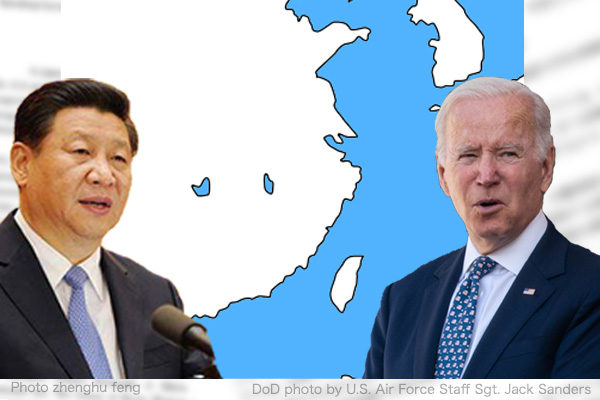Amid the worst U.S.-China relations since their normalization in 1979, U.S. President Joe Biden and Chinese President Xi Jinping at their meeting in a San Francisco suburb on November 15 agreed to resume high-level military-to-military talks to avoid accidental clashes, easing bilateral tensions for the immediate future. But don’t be fooled by such superficial fence-mending. The Taiwan presidential election, which could potentially escalate the tension between the US and China, is approaching in two months. More fundamentally, China’s ambitions to overturn the U.S.-led international order seem to be growing.
China’s Global ambitions
A sign of China’s growing ambitions came as Xi at the bilateral summit said that “the Earth is big enough to accommodate both countries.” Xi had previously said that the Pacific Ocean was big enough, indicating his intention to divide the Pacific into two -- the western half as China’s sphere of influence and the eastern half as the United States’. The latest statement extended the geographical scope from the Pacific Ocean to the entire planet Earth, suggesting that China’s pursuit of hegemony will not stop in the Western Pacific.
China’s annexation of Taiwan would be essential to realizing China’s ambitions to drive the U.S. out of the Western Pacific, but Biden’s remark at a press conference after the summit signaled a hint of uncertainty about his resolve to defend Taiwan. When asked if there was any change in his commitment to defend Taiwan, he gave an incongruous answer: “We maintain an agreement that there is a One China policy --- and I’m not going to change that.”
I don’t know if he misheard the question or deliberately evaded the answer, but Biden has stated four times to the effect that the U.S. would defend Taiwan in the event of a Chinese military invasion. The failure to make such a statement this time raises concerns about a decline in deterrence against China.
Difficult peaceful coexistence
At the press conference, Biden also revealed that he had warned Xi not to interfere in Taiwan’s presidential election on January 13, 2024. Beijing is doing its utmost to block the election of Lai Chingte, a presidential candidate from the ruling Democratic Progressive Party, which distances itself from Beijing. It is natural to assume that Beijing’s influence was behind the less popular opposition camp’s agreement to field a unified candidate on the same day as the U.S.-China summit. Not only military coercion, but also the use of influence amounts to election interference. The Biden warning may have been ignored by Xi.
If the ruling party wins the presidential election, China is expected to exert military coercion on Taiwan, testing the U.S.-China agreement to ease bilateral tensions.
As long as the U.S.’ interest is in maintaining the international order that it established after World War II and China’s goal is to dismantle that order, it will be difficult for the two big powers to coexist peacefully. China’s decision to hold the summit with the U.S. this time should be seen as a way to buy time to recover its economy hit by a real estate recession, with investment by U.S. companies, and enhance the resilience of its military power in preparation for invading Taiwan. Based on such recognition of the reality, Japan must cooperate with the U.S. and other like-minded countries and accelerate the beef-up of its military capabilities to deter a Taiwan contingency.
Yasushi Tomiyama is a senior research fellow and Planning Committee member at the Japan Institute for National Fundamentals and a former foreign news editor and bureau chief in Washington, D.C., London, and Bangkok for the Jiji Press.


